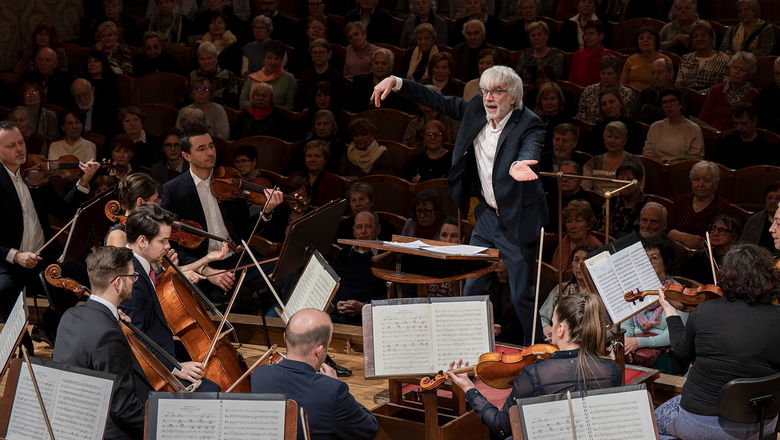Over 400 years ago, opera was born in the Italian city Florence. The breathtakingly complex genre embodies elements of perhaps all artforms, from music to literature and the visual arts. Over the centuries, opera moved from the salons of intellectuals and scholars to the palaces of wealthy nobles, and finally to public theatres, festival houses, and huge amphitheatres. Operatic form has undergone a fascinating development. It has taken inspiration from the stories of the gods of antiquity and of ordinary villagers, bringing its listeners to tears with tragic tales of heroes beset by tragic fates, or to tears of laughter over grotesque scenes and amusing dialogues. Opera became a showcase for the perfect vocal artistry of castrati and prima donnas while also serving as a medium for ideas with philosophical depth. Opera history has had no lack of disputes and revolutions. The genre found its way to every corner of Europe, sooner or later transforming itself into a unique form, absorbing all the specific characteristics of various local cultures and societies. Nonetheless, Italian opera has maintained its predominance for 300 years, and the conductor Giovanni Antonini has prepared this evening’s programme as a tribute to that legacy.
Performers
Louise Alder soprano
Louise Alder studied at the Royal College of Music International Opera School where she was the inaugural Kiri Te Kanawa Scholar.
Her engagements in the 2023/24 season include Susanna in a new production of Le nozze di Figaro and Fiordiligi (Così fan tutte) for the Bayerische Staatsoper, Munich and Cleopatra (Giulio Cesare) for the Glyndebourne Festival. Concert engagements include Haydn's The Creation (London Philharmonic Orchestra/Edward Gardner), Mozart Concert Arias (Orchestra of the Age of Enlightenment/Riccaro Minasi), Brahms' Ein deutsches Requiem (Accademia Nazionale di Santa Cecilia/Philippe Jordan) and Mahler's Symphony No. 4 (Bayerisches Statsorchester/Vladimir Jurowski).
Previous highlights have included Susanna for the Wiener Staatsoper, the Bayerische Staatsoper, Munich and the Opernhaus Zürich; Gretel Hänsel und Gretel and Marzelline Fidelio for the Bayerische Staatsoper, Munich; Anne Trulove The Rake’s Progress for the Glyndebourne Festival; Zerlina Don Giovanni for the Royal Opera House, Covent Garden and the Teatro Real in Madrid; Sophie Der Rosenkavalier for the Wiener Staatsoper and the Glyndebourne Festival and Cleopatra for the Theater an der Wien and Oper Frankfurt.
Her recital appearances include the BBC Proms, Graz Musikverein and the Oper Frankfurt with Gary Matthewman, Wigmore Hall with both Joseph Middleton and James Baillieu, the Schubertiade Schwarzenberg with Daniel Heide and the Oxford Lieder Festival and Fundación Privada Victoria de los Ángeles in Barcelona with Sholto Kynoch.
Giovanni Antonini conductor
A native of Milan, Giovanni Antonini has long been acclaimed worldwide for his innovative and polished approach to performing the Baroque and Classical repertoire while fully respecting the precepts of historically informed interpretation. However, the path of early music had not been his first choice of study. He had originally applied to the conservatoire as a violinist, and it was only because he did not succeed at his audition that he ultimately began studying the recorder, and he became a master of the instrument. It was thanks to his study of the flute at the Civica Scuola di Musica that Antonini fully discovered the world of Baroque music. In addition, as he himself recalls, it was a great advantage that as a flautist specialising in historical interpretation, he did not have many artistic models to rely on and simply imitate (after all, in the 1980s the field was still in its infancy), so he had to seek out his own interpretive approaches. He found further support in his studies at the Centre de Musique Ancienne in Geneva, but the urge never abandoned him to penetrate truly deeply into the music and to create his own language, which is now so appreciated for its uniqueness.
In 1985 he founded his own Baroque ensemble Il Giardino Armonico, with which he still appears all around the world in the dual role of soloist (whether on the recorder or the Baroque transverse flute) and conductor. Overall, perhaps the most ambitious project he threw himself into a few years back with the Basel Chamber Orchestra was to record the complete symphonies of Haydn, and to finish by the year 2032, the 300th anniversary of the composer’s birth. The project Haydn2032, of which Antonini is the artistic director, is daring not only for its scope (Haydn wrote 108 Symphonies, so it is necessary to release 2 CDs with three or four symphonies every year!), but also because of the interpretive difficulties of Haydn’s music. “Haydn is very difficult to perform well because many of the interpretive paths can sound boring. But Haydn is not boring, it’s just the matter of finding the key to the correct interpretation,” explains Antonini. So far, 14 CDs have appeared (most recently this September), so the Haydn symphonic repertoire he has already recorded, rehearsed, or prepared has also influenced the programming of Antonini’s concerts in recent years.
Of course, Antonini does not overlook other greats masters of the 16th through the 18th centuries, whose works he has recorded with Il Gardino Armonico (including the Vivaldi concerto on today’s programme) or performed in concert with such major orchestras as the Berlin Philharmonic, Amsterdam’s Concertgebouw Orchestra, and the London Symphony Orchestra and with renowned soloists like Cecilia Bartoli, Giuliano Carmignola, Isabelle Faust, and Katia and Marielle Labèque. He also devotes himself to opera; in recent years, for example, we have been able to see him at Milan’s La Scala (Giulio Cesare), the Zurich Opera House (Idomeneo), and the Theater an der Wien (Rappresentatione di Anima, et di Corpo). He is also the artistic director of the Polish music festival Wratislavia Cantans and the principal guest conductor of the Basel Chamber Orchestra.
